 Testosterone is the keystone hormone of vigorous manhood and masculinity. Without Testosterone, men would be amorphous and asexual, lacking desire, muscle tone, strength, and confidence.
Testosterone is the keystone hormone of vigorous manhood and masculinity. Without Testosterone, men would be amorphous and asexual, lacking desire, muscle tone, strength, and confidence.
In fact, these are all symptoms of Testosterone Deficiency, which can have a disastrous effect on male well-being.
While Testosterone Replacement Therapy is a fantastic option to restore waning Testosterone Levels, we all know that it's best to put off medical intervention until absolutely necessary, if possible.
Testosterone Production is highly sensitive to a variety of factors, including diet, activity level, sleep quality, and more.
Often, in the case of mild-to-moderate Testosterone Deficiency, T-Levels can be restored to healthy levels by merely making some smart lifestyle changes.
Video Link: https://vimeo.com/291606373
Video Download: Five Ways To Boost And Enhance Your Testosterone Levels
Video Stream: Five Ways To Boost And Enhance Your Testosterone Levels
If you've experienced weight gain, loss of strength, fatigue, mood instability, and a shortage of sexual desire, you may be a victim of declining Testosterone Levels.
If you're interested in boosting your Testosterone Levels naturally, there are a variety of changes that you can make in your life to maximize your natural secretion of Testosterone and get back to feeling more like yourself.
Exercise More to Boost Testosterone Levels
One of the most effective ways to squeeze more Testosterone out of your testes and adrenal  glands is to engage in a regular workout plan.
glands is to engage in a regular workout plan.
Your body responds to physical exertion by releasing Testosterone, especially in response to weightlifting and other forms of anaerobic physical activity.
The body releases elevated Testosterone for an hour or more after your workout is complete.
Exercise also helps relieve many symptoms associated with Testosterone Deficiency via different channels. It releases endorphins, which make you feel better.
Improved muscle mass and cardiovascular training will enhance your energy and blood flow. You'll also burn more calories, which will help you lose weight.
One of the most effective forms of exercise to boost both Testosterone and HGH Levels is High-Intensity Interval Training (HIIT).
In this kind of activity, you alternate between a baseline of moderate cardiovascular physical exertion and pushing your body to the limit for around 90 seconds to two minutes at a time.
High Intensity-Interval Training can be conducted without equipment, just by running, or you could row, jump rope, swim, or any other form of physical exertion, which allows you to alternate between the two levels of activity.
Lose Weight and Eat Better to Naturally Elevate Testosterone Levels
 Obesity has a robust correlation with Low Testosterone Levels.
Obesity has a robust correlation with Low Testosterone Levels.
That's because adipose fat cells, which are the fat cells that comprise body fat, naturally convert some Testosterone into Estrogen.
That's one reason why men that are overweight have a tendency to develop gynecomastia, colloquially known as man boobs.
Though obesity has a strong association with Low-T, merely being overweight harms Testosterone Levels. By losing weight, you can reverse the influence of excess body fat on Serum Testosterone and bring your T-Levels back up to a healthier level.
It's also essential to eat the right foods to preserve your Testosterone. Foods with empty calories, such as white bread, white rice, and refined sugars, have a terrible effect on your hormone balance.
They cause your insulin levels to spike, they suppress your HGH Production, and they get stored quickly as fat, which impairs your Testosterone Production.
There are also certain foods and drinks, like soy, alcohol, and foods containing trans-fats, which can diminish your circulating Testosterone.
A healthy diet is fantastic for not only your Testosterone Levels but your overall Hormone Balance.
Protect Your Vitamin D Levels to Keep Testosterone Production Elevated
For the body to operate at its peak, you have to get enough of your essential vitamins and 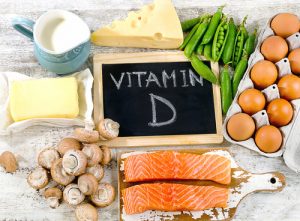 nutrients. As you grow older, Vitamin D becomes more and more critical, as your body processes it from sunlight less effectively over time.
nutrients. As you grow older, Vitamin D becomes more and more critical, as your body processes it from sunlight less effectively over time.
If you live somewhere, that doesn't get a lot of sun for months at a time, or if you live far from the equator, you may have issues with Vitamin D production even if you're young and otherwise healthy.
Vitamin D is vital for Calcium utilization, fatigue prevention, and Testosterone Production, among other purposes.
If you live somewhere with plenty of sun, make sure you get outside and bask in the light for 15-20 minutes per day. It doesn't sound like a long time, but many people hardly see a minute of direct sunlight per day, if you can believe it!
In the winter months or year-round if you live in a cold enough place, you should be sure to eat foods with Vitamin D or take a Vitamin D supplement to make up for the minimal direct sunlight that you're getting. Some good options for natural sources of Vitamin D are egg yolks, cold-water fish, and mushrooms.
Improve Your Sleeping Habits to Boost Your Testosterone
 We spend around 1/3rd of our lives asleep. Our day-to-day activities require a lot of energy and are an immense drain on our resources.
We spend around 1/3rd of our lives asleep. Our day-to-day activities require a lot of energy and are an immense drain on our resources.
When we are sleeping, our bodies go to work, restoring and repairing the body's various systems to prepare for another day.
Our bodies also produce a lot of Testosterone while we sleep, and if you aren't getting proper rest at night, you'll be more likely to experience issues resulting from suppressed Testosterone Levels.
Research conducted by the University of Chicago provides strong evidence that men have lower Serum Testosterone Levels correlated with the length of their average night's sleep. It only takes a matter of days for Testosterone Issues to become apparent.
Manage Stress to Improve Testosterone Balance
 You may find this surprising, but even your attitude plays a big part in your Testosterone Levels.
You may find this surprising, but even your attitude plays a big part in your Testosterone Levels.
Cortisol is the body's primary stress hormone. Cortisol is healthy when released in response to immediate stressors, but is incredibly problematic if you deal with Chronic Stress.
Both Cortisol and Testosterone have the same basic structure, and if your body produces too much Cortisol, it directly suppresses the body's ability to provide Testosterone.
To promote a healthier balance between Cortisol and Testosterone, you should take steps to manage your anxiety.
Mindful meditation and yoga are both excellent at keeping stress in check. It's also important to recognize that the mind and body are linked. If you exercise, you not only mitigate physical stress but psychological stress as well, which will be doubly beneficial to your Testosterone Levels.
It's also important to know when to ask for help. If your stress and anxiety are overpowering, and you need some real assistance, don't be afraid to turn to a counselor or psychologist for help!
A Comprehensive Approach is Most Effective for Boosting Testosterone
As you can see, there are a lot of physiological systems that have an impact on your underlying Testosterone Levels. To boost your T-Levels most effectively, you should take steps to improve your well-being in multiple aspects of your health and your life.
By following this advice, you'll not only have the ability to amplify your Testosterone Production and Circulation, but you'll also feel better, as you'll be improving your health in other ways!
If Lifestyle Changes Aren't Enough to Get your Testosterone Back on Track, Consider HRT Therapy
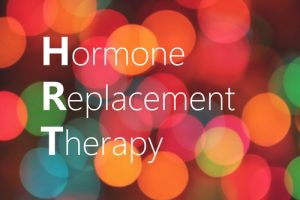 While the previous advice can help millions of men nationwide as they struggle with low Testosterone Levels, eventually, most attempts at protecting your natural Testosterone Levels will ultimately prove ineffective.
While the previous advice can help millions of men nationwide as they struggle with low Testosterone Levels, eventually, most attempts at protecting your natural Testosterone Levels will ultimately prove ineffective.
This is because, as men grow older, Testosterone Production falls as a direct factor of age.
This means that your peak Testosterone Ceiling will fall slowly and continuously from age 30 on through the rest of your life. Eventually, the most Testosterone that you can produce, even when you're making all the right choices, will fall in the window of deficiency.
Our Hormone Clinic specializes in the treatment of Hormone Disorders and Conditions such as Age-Related Testosterone Deficiency and HGH Deficiency.
If you're interested in having your Testosterone Levels checked, we work with LabCorp and Quest Diagnostics to provide quick and easy Hormone Deficiency Diagnosis and Treatment to patients nationwide.
Just start by filling out the form on this page or contacting us at the number above so that you can get started!
References
Can You Boost Low Testosterone Naturally?

- The Most Common Symptoms of Low Testosterone in Both Old and Young Men [Last Updated On: November 22nd, 2025] [Originally Added On: January 23rd, 2021]
- The Results Are In: The Effects of TRT on Men with Prostate Cancer [Last Updated On: September 1st, 2025] [Originally Added On: February 25th, 2021]
- Treating Low Testosterone with Hormone Therapy (TRT): The Fundamentals [Last Updated On: December 7th, 2025] [Originally Added On: April 15th, 2021]
- The Relationship Between Erections and the Estrogen/Testosterone Ratio [Last Updated On: June 2nd, 2025] [Originally Added On: April 15th, 2021]
- Testosterone Levels Main Determining Factor Behind Fracture Risk in Older Men [Last Updated On: March 23rd, 2025] [Originally Added On: April 23rd, 2021]
- If You Suffer From Low-T, You’re More at Risk for Severe COVID-19 Symptoms [Last Updated On: May 30th, 2025] [Originally Added On: May 30th, 2021]
- Is Male Menopause a Real Thing? Yes, Actually [Last Updated On: May 31st, 2025] [Originally Added On: June 6th, 2021]
- Testosterone Therapy May Have Positive Effects on Non-Alcoholic Fatty Liver Disease [Last Updated On: June 1st, 2025] [Originally Added On: June 30th, 2021]
- Focus on These Five Workouts to Naturally Boost Both HGH and Testosterone [Last Updated On: April 6th, 2025] [Originally Added On: March 16th, 2022]
- Does Every Man Experience Erectile Dysfunction as He Gets Older? [Last Updated On: April 10th, 2025] [Originally Added On: March 25th, 2022]
- The Pros and Cons of Taking DHEA Supplements for Men [Last Updated On: April 11th, 2025] [Originally Added On: April 7th, 2022]
- Avoid These Foods That Reduce Testosterone [Last Updated On: April 16th, 2025] [Originally Added On: June 28th, 2022]
- Tlando: The Super Easy TRT Alternative to Xyosted for Testosterone Deficiency [Last Updated On: April 18th, 2025] [Originally Added On: July 11th, 2022]
- Reasons Why Cialis May Be a Better Option Than Viagra to Treat ED [Last Updated On: April 17th, 2025] [Originally Added On: July 22nd, 2022]
- Testosterone and Estrogen Imbalance May Impair Shoulder Joint Health [Last Updated On: November 10th, 2025] [Originally Added On: August 16th, 2022]
- Can You Suddenly Stop Testosterone Replacement Therapy (TRT)? [Last Updated On: April 25th, 2025] [Originally Added On: October 7th, 2022]
- What is Testosterone? [Last Updated On: April 29th, 2025] [Originally Added On: October 11th, 2022]
- You'd Never Suspect That Your Problems are Caused by Low-T! [Last Updated On: April 15th, 2025] [Originally Added On: March 9th, 2024]
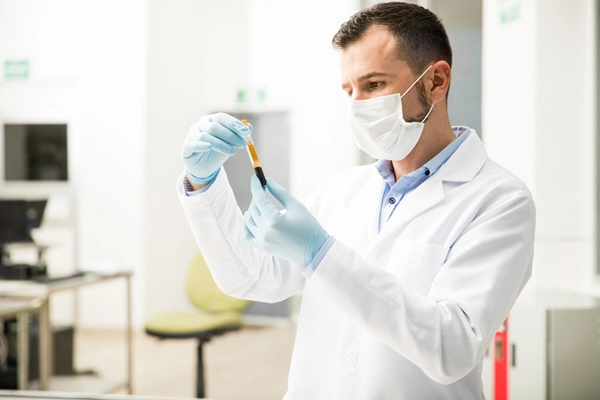
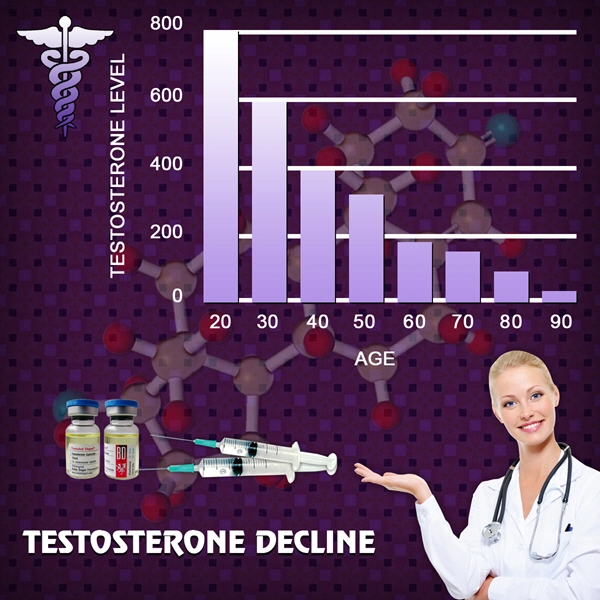
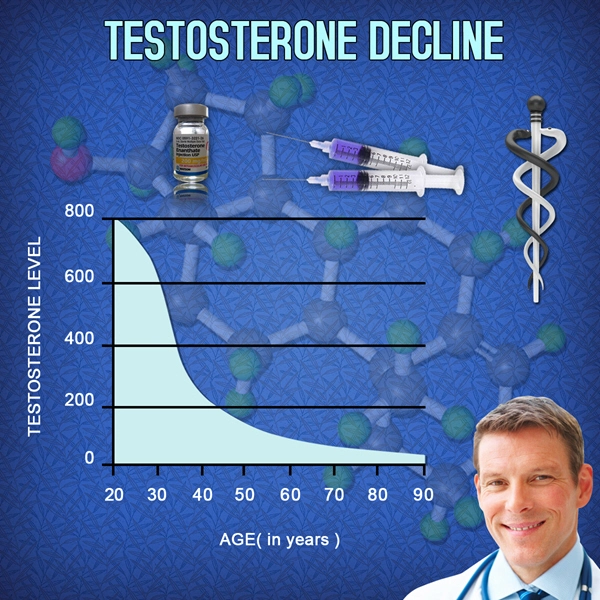
List of USA state clinics - click a flag below for blood testing clinics.
Word Count: 1355


















































